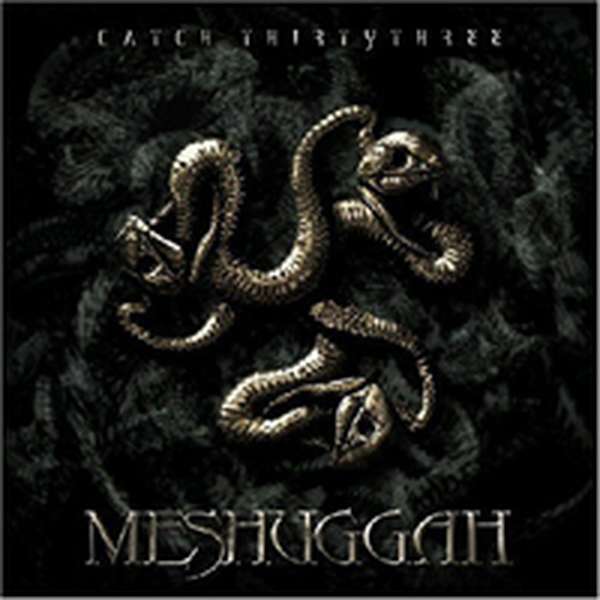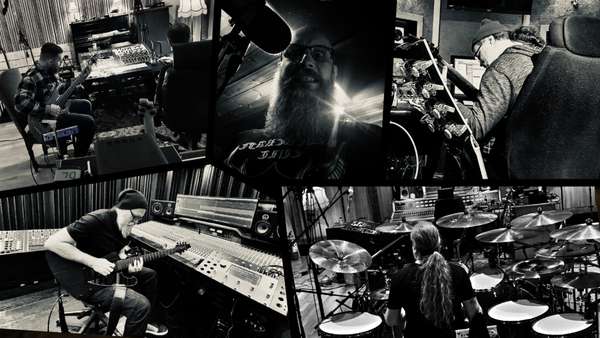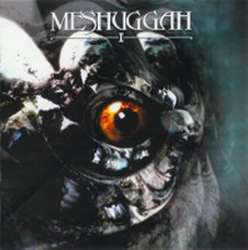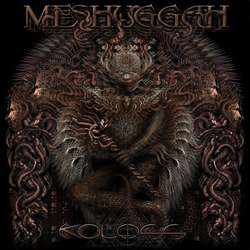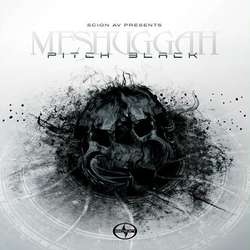There are lots of ways that one can view the genre of metal and any of its countless sub-genres - a soundtrack to your miserable life, a vicarious escape from the mundane, the optimum means of combating (or embracing) anger - all are possibilities, but not many will admit to regarding it as a valid art form, just as capable of shaping and changing lives and minds as classical, jazz, or Radiohead. For years, it has seemed Meshuggah's sole duty to shatter any tentative preconceptions regarding extreme metal as a stale, tasteless exercise in ridiculousness. 2004's epic I is one of metal's most artistic statements, a one-song, 21-minute EP lacing their trademarked math metal mindfucking with unsettlingly delicate ambient sections and radical alterations in tempo and time signature. Catch 33 continues much in the same epic vein as I, but this time around the listener is treated to a full-length LP's worth of genius and structured chaos.
In Meshuggah's world, the machines have taken over, and they're way more vicious than the ones in the Matrix. Themes of loss of individuality, the danger of uninhibited technological advance, and struggle to find purpose in a meaningless world are covered in lyrics that range from awesome ("The struggle to free myself of restraints/ becomes my very shackles," "The scattered jigsaw of my redemption/ laid out before my eyes/ Each piece as amorphous as the other/ Each piece in its lack of shape a lie") to cringingly awful ("Hastily crawling my way into the darkest of my inner scenes of torture," "I float through physical thoughts/ I stare down the abyss of organic dreams"). The lyrics are written mostly in the first person, giving Catch 33 a more personal feel than Meshuggah's previous outings. There seems to be a vague central concept, but the possibilities for interpretation are nearly endless.
The music treads familiar territory for Meshuggah while still sounding fresh and vital to the metal world. Though the album contains fourteen tracks, in actuality, there are really only six. Tracks 1-3 and 4-6 play like two typical Meshuggah tracks (why they're even broken up I'm not 100% sure). After their conclusion comes the bizarre, troubling "Mind's Mirrors," containing a synthesized vocal (anyone remember Cynic?) reciting some deeply unsettling lyrics over the eerie ambience that is quickly becoming another one of the band's trademarks. The track's quietude offers a perfect set-up for the jarring introduction of "In death - Is life/ In death - Is death" (tracks 8 and 9), the latter, a nearly 14-minute piece, comprising about 30% of the album's duration. "Shed" (the only true single track on the album) and the last three songs round out Catch 33 nicely, ending, perhaps unsurprisingly, on an ambient note.
What really separates this album from all other metal albums is its effective use of silence and repetition to create a hypnotic, numbing atmosphere. We're not talking about conventional Lamb of God/God Forbid/Shadows Fall song-oriented "new wave of American heavy metal" here. Any of the aforementioned descriptors (numbing, repetitive, etc.) will undoubtedly seem negative to some, but when you listen to this album and band, you'll realize that it just works. That any other band could pull off this robotic, machine-like sound without sounding completely boring, I am very doubtful. For the thinking man, the best metal album of the year (and probably since I).
